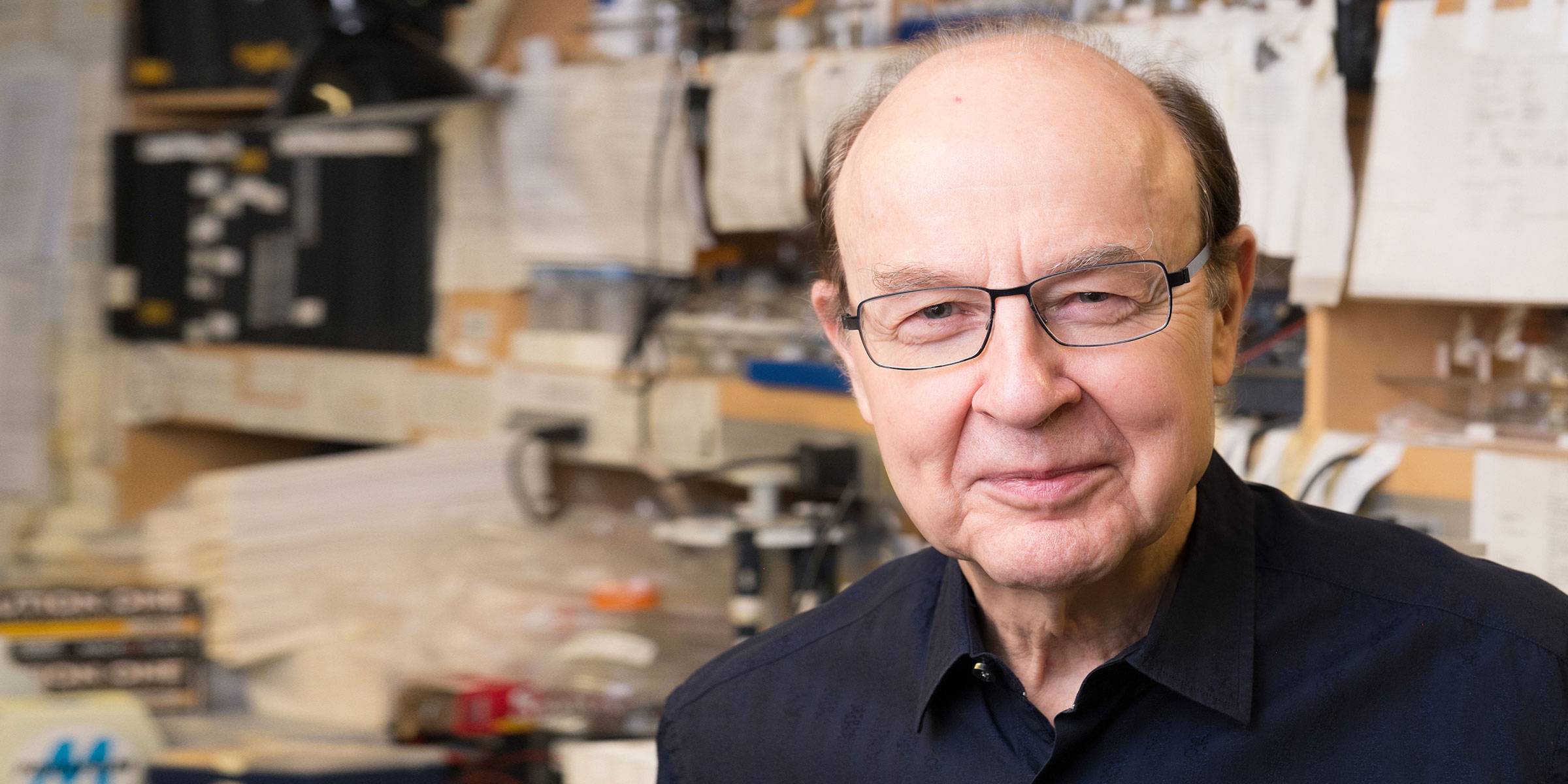Robert G. Roeder, Ph.D.
Arnold and Mabel Beckman Professor
Gene expression is controlled primarily at the level of transcription, the process by which genes are copied into RNA before being translated into proteins. A central question in biology is how the transcription of the human genome’s approximately 20,000 genes is regulated in a gene- and cell type-specific manner. Roeder studies the transcription factors, including epigenetic factors, and underlying mechanisms involved in this regulation.
Differential gene expression, regulated primarily at the level of transcription, underlies key events in an organism’s development, cell growth, differentiation, and homeostasis, as well as in pathologies such as cancer. The transcription programs central to these events are governed by cell-specific master transcription factors bound to specific enhancer and promoter elements. The extraordinary power and significance of such factors is profoundly demonstrated by the ability of very small subsets to reprogram somatic cells to a pluripotent state. Roeder’s major objectives are to determine the mechanisms by which such factors, acting ultimately upon the general transcription machinery, activate or repress specific target genes in various physiological processes.
The lab’s multipronged experimental strategy emphasizes powerful cell-free systems, pioneered by Roeder, that recreate the essence of transcription in a test tube with cloned genes and factors purified from cellular extracts. The structure, function, mechanism of action, and regulation of these factors is then studied by a combination of biochemical, cell-based, genomic, and genetic analyses.
The actual transcription of protein-coding genes is mediated by RNA polymerase II and cognate initiation factors that form functional preinitiation complexes on promoters via an ordered assembly pathway. The process begins with the recognition of common core promoter elements (e.g., TATA box) by the multisubunit TFIID. These initiation factors, which comprise the general transcription machinery, represent the ultimate targets of various gene-specific factors. However, other “cofactors” are essential for functional communication between the gene-specific factors, to which they bind, and the general transcription machinery.
Roeder’s current work is heavily focused on these cofactors, many of which are structurally complex. They include cofactors that alter the structure of the natural chromatin template (e.g., multi-subunit histone acetyl- and methyl-transferase complexes), others that act directly on the general transcription machinery (e.g., the 30-subunit Mediator), and a variety of cell/activator-specific cofactors (e.g., the B cell-specific OCA-B).
The lab’s current activities focus on transcription factors and cofactors important for adipogenesis (PPARγ, MED1); brown fat thermogenesis (PGC-1, PRDM16); B cell differentiation (E2A, OCT1/2, OCA-B), hematopoietic malignancies (OCA-B and the fusion proteins E2A-PBX1, AML1-ETO, and MLL1-AF9/ENL); breast cancer (estrogen receptor); and tumor suppression (p53).
In addition to detailing the mechanisms by which specific target genes are activated by individual transcriptional activators and associated cofactors, the Roeder laboratory is interested in determining the basis for differential usage of cofactors by individual activators in varied contexts. They are also discovering how variations in cofactor usage can dictate cell fate (e.g., growth arrest versus apoptosis in p53-dependent DNA damage responses), and, in the case of leukemic fusion proteins generated in acute myeloid leukemia, potential therapeutic targets.
Roeder is a faculty member in the David Rockefeller Graduate Program, and the Tri-Institutional P.D.-Ph.D. Program.
